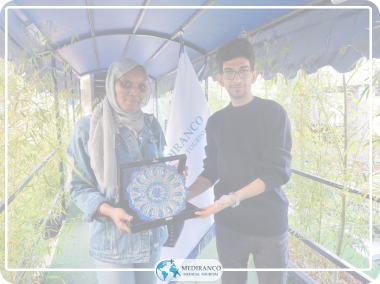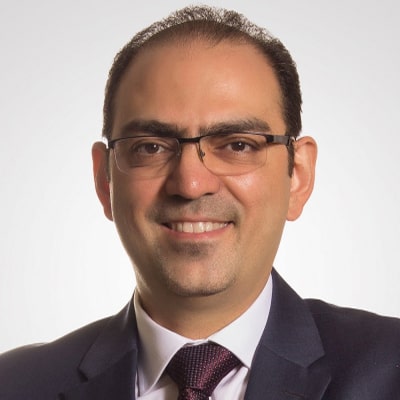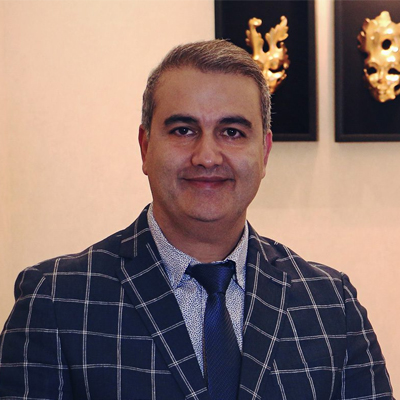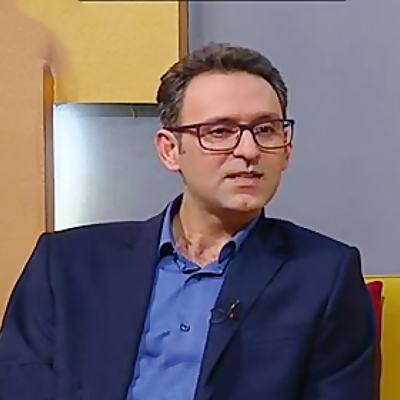Gynecomastia in Iran
Gynecomastia surgery, known as breast reduction, is a procedure aimed at reducing breast size in men and improving the contours of the chest. This surgery is particularly beneficial for severe cases where excess breast tissue causes sagging and stretching of the areola, the dark skin surrounding the nipple.
We help you to double your beauty! Get in touch with our consultants…


Stay in Iran
7 days
Recovery time
10-12 days
Clinic Stay
1 day
Stay in Iran
7 days
Recovery time
10-12 days
Clinic Stay
1 day
- Packeges
- Videos
- B & A Photos
- Surgeon
- Hotels
- FAQs
What is gynecomastia surgery?
Gynecomastia is a condition observed in men, where the breasts become enlarged or overdeveloped. It can occur at any stage of life and is often linked to hormonal changes, heredity, obesity, or the use of certain medications. The presence of gynecomastia can lead to emotional discomfort and a decrease in self-confidence, causing some men to avoid specific physical activities or intimate situations to conceal the condition. Typically, gynecomastia is characterized by the presence of excess localized fat in the breast area, development of excessive glandular tissue in the breasts, and sometimes an excess of breast skin. It can affect one breast (unilaterally) or both breasts (bilaterally).How much is gynecomastia surgery cost in Iran?
Money often plays a dominant role in various medical and cosmetic procedures worldwide, except in Iran. Due to the significant cost difference, many individuals from different countries prefer traveling to Iran for gynecomastia surgery. The average cost of gynecomastia surgery in Iran ranges from $1,500 to $3,000. The cost typically covers doctor visits, tests, clinic fees, anesthesia, post-op recovery, follow-up, and related expenses. However, it’s essential to note that the final cost might vary based on factors such as the surgeon’s reputation, expertise level, the complexity of the operation, and other related aspects
Romanian girl choosing Iran for a perfect Gynecomastia result
why choose Iran for gynecomastia
Iran has become a preferred destination for gynecomastia treatment due to its winning combination of affordability and medical expertise. Highly skilled surgeons, modern facilities, and competitive pricing make Iran an attractive choice. The cost of gynecomastia surgery in Iran is significantly lower than in many Western countries, often ranging from $800 to $2000. Despite the lower cost, patients can expect top-quality care and personalized treatment plans. Additionally, Iran offers a rich cultural experience for medical tourists, making it an ideal destination for those seeking both cost-effective healthcare and a unique trave
Others Video
Australian getting a gynecomastia in Iran thinks it’s way better than you think
Australian getting a gynecomastia in Iran thinks it’s way better than you think
Australian getting a gynecomastia in Iran thinks it’s way better than you think
Australian getting a gynecomastia in Iran thinks it’s way better than you think
Gynecomastia in Iran before and after
Before
after


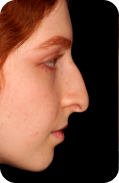

Before
after




Before
after




Before
after




What Our Customer Say
Iesna
GB

Mediranco is an excellent agency they helped me arrange my whole trip to Iran and surgery with Dr. Hooman Ganjehkhosravi. From the moment I arrived in Tehran, I was greeted with warmth and hospitality that made…
Lydia
GB

I had a guide called sara who was absolutely amazing. She was so caring and kind and made sure I was comfortable and safe throughout my trip. I really recommend any one using mediran to book with sara!
Mansoor
DK
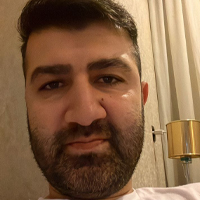
My name is Mansoor from Denmark .I highly recommend this mediranco. Mr Hossain was very kind and Good person. The Company mediranco is very fast to response. Thanks mediranco
Amal
AU

I had an amazing experience with Mediranco’s service. Traveling to Iran on November 1st, 2023, for Gastric sleeve surgery was truly incredible. From the airport pick-up to a farewell dinner on my last day, the journey was exceptional…
Now, let’s have a look at the photos of our patients in Iran!






Dr Shahriar Yahyavi
+2000
Successful Surgeries
12
Years of Experience
Successful Surgeries
+5
Dr Mitra Manavi
+2000
Successful Surgeries
12
Years of Experience
Successful Surgeries
+5
Dr kasra sabeti
+2000
Successful Surgeries
12
Years of Experience
Successful Surgeries
+5
Dr Farzad Nikouseresht
+2000
Successful Surgeries
12
Years of Experience
Successful Surgeries
+5
Dr Asadollah Mahdavi
+2000
Successful Surgeries
12
Years of Experience
Successful Surgeries
+5
Best Arm Lift Surgeon Iran
How is gynecomastia done?

During your initial consultation with your clinician, the options for intravenous sedation and general anesthesia will be discussed. They will help you determine the most suitable method based on your needs and comfort. Once you arrive for your procedure, the agreed-upon medication will be administered by your clinician to ensure you remain calm and comfortable throughout the process. If liposuction is part of your procedure, your clinician will create small incisions in the affected area. Through these incisions, a thin hollow tube called a “cannula” will be inserted and moved back and forth to loosen the excess fat, which will then be removed using vacuum suction. On the other hand, if excision is involved, your clinician will make several larger incisions in the area. The specific pattern, length, and location of these incisions vary depending on the individual and the type of procedure. During your initial consultation, your clinician will provide you with a clear understanding of the depth and extent of these incisions.
Hotels

Shiraz Hotel
Tehran, crossroad of chamran and valiasr, parsian esteghlal international hotel
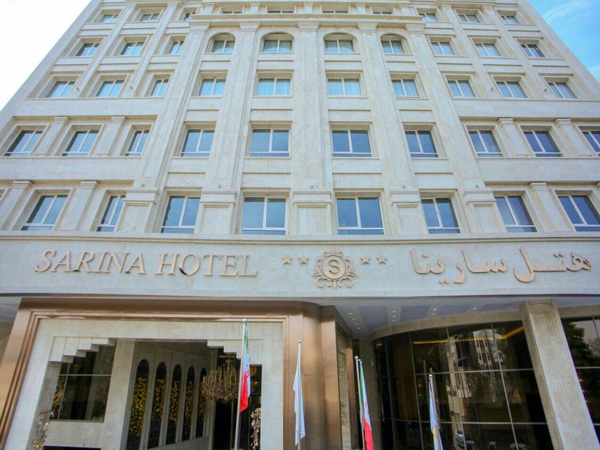
Sarina Hotel
Tehran, crossroad of chamran and valiasr, parsian esteghlal international hotel

SarayeAmeriha Boutique Hotel
Tehran, crossroad of chamran and valiasr, parsian esteghlal international hotel

Parsian Safaiyeh Hotel
Tehran, crossroad of chamran and valiasr, parsian esteghlal international hotel

Parsian Esteghlal Hotel
Tehran, crossroad of chamran and valiasr, parsian esteghlal international hotel

Parsian Azadi Hotel
Tehran, crossroad of chamran and valiasr, parsian esteghlal international hotel
How to Recover From gynecomastia ?
- Take time off work
Most patients take 7-10 days off work to recover from a gynecomastia procedure. You will likely feel some discomfort and swelling during this time, so it is important to take it easy and rest.

- Follow your surgeon’s instructions
Guidance from your plastic surgeon is key post gynecomastia . Adhere to their instructions meticulously for effective care. Your surgeon will provide details on cleaning the area, managing swelling and pain, and scheduling follow-up appointments. Keep your head elevated during the initial days to reduce swelling, and your surgeon might recommend a nose splint or cast for protection. Additionally, pay attention to your diet—following your surgeon’s advice on nutrition and fluid intake contributes to a smooth recovery. Trust the process and ensure the best outcomes by following your surgeon’s personalized care plan.

- Avoid strenuous activities:
You should avoid strenuous activities such as exercise, heavy lifting, and bending over for at least two weeks after the procedure. This will help to minimize swelling and prevent any damage to the delicate tissues in your nose.

- Take your medications as directed
If prescribed pain medication, take it as directed to alleviate any post-procedure discomfort. Also, to ensure the best results and prevent infections, diligently take the prescribed antibiotics. Timely and consistent medication intake is crucial, so stay on schedule and trust your surgeon’s advice for a smooth and successful recovery.

- Use cold compresses
Applying cold compresses to your nose can help to reduce swelling and discomfort. Be sure to follow your surgeon’s instructions on how often to use cold compresses and how long to apply them for.

- Attend follow-up appointments
Applying cold compresses to your nose can help to reduce swelling and discomfort. Be sure to follow your surgeon’s instructions on how often to use cold compresses and how long to apply them for.

- Avoid alcohol and smoking
Applying cold compresses to your nose can help to reduce swelling and discomfort. Be sure to follow your surgeon’s instructions on how often to use cold compresses and how long to apply them for.

Types of gynecomastia surgery
Gynecomastia surgery offers several different types of procedures to address the condition. Some of the common techniques include:
Liposuction:
Liposuction focuses on removing excess fat from the chest area while preserving the glandular tissue. This procedure is most suitable for individuals with good skin elasticity and minimal glandular tissue. One of the key advantages of this option is that it leaves minimal scarring.
Excision:
In excision, larger incisions are made in the affected area to directly access and remove the firm glandular breast tissue. The pattern, length, and location of these incisions are determined based on the patient’s chest size and desired outcome.


Combination Technique:
A combination of liposuction and excision is often utilized by surgeons to achieve comprehensive results. This approach allows for the removal of both unwanted fat and glandular tissue, maximizing the effectiveness of the surgery.
In certain instances, excess breast tissue weight and mass can lead to sagging, causing the nipple to be pulled downward and stretching the skin around it, resulting in an enlarged appearance. In such cases, gynecomastia surgery may involve resizing and repositioning the nipple to achieve a more desirable aesthetic outcome. This additional procedure is more invasive and may require extended healing time compared to simpler cases.
Overall, the type of gynecomastia surgery recommended will depend on the individual’s specific condition and their desired results. A skilled and experienced surgeon will assess the patient’s needs during the initial consultation to determine the most suitable surgical approach for their unique case.
As with any invasive surgery, gynecomastia surgery also carries certain risks. Common risks associated with the surgery include bleeding and infection at the incision site. These are general risks that are typically present in most surgical procedures.
In addition, some specific risks are related to gynecomastia surgery. For instance, there is a rare possibility of the nipple having a sunken appearance or, in extreme cases, complete loss of the nipple.
Moreover, patients may experience prolonged numbness in the treated area or encounter fluid buildup. Skin color irregularities are also a potential concern.
Another noteworthy risk is the loss of sensitivity in the nipples. Although nipple sensitivity and sensation usually return within a few weeks or months after the surgery, there is a chance that some individuals may permanently lose sensation in their nipples.
Before undergoing gynecomastia surgery, it is essential for patients to be aware of these potential risks and discuss them thoroughly with their surgeon. Proper pre-operative evaluation and post-operative care can help minimize these risks and ensure a successful outcome.


What happens after gynecomastia surgery?
After gynecomastia surgery, it is common to experience significant soreness during the initial days. However, this discomfort and tenderness typically improve within about a week. Patients can expect to return to work after approximately two weeks, but it is essential to follow the provider’s post-operative instructions diligently during the healing process.
To aid the healing process and promote a successful outcome, patients are advised to avoid lifting heavy objects and refraining from reaching their arms above their head while they recover.
It’s essential to be patient with the results, as they may not be immediately noticeable. It usually takes about three to six months for the breast tissue to fully heal, and for swelling to subside, leading to visible results. Once the healing process is complete, the results of gynecomastia surgery are permanent.
However, depending on individual circumstances and desired outcomes, some individuals may require additional surgeries to achieve their desired results fully. Consulting with the provider can help determine the most appropriate treatment plan for each patient’s specific needs and goals
Aftercare for gynecomastia surgery
Gynecomastia surgery is typically performed on an outpatient basis, allowing patients to return home the same day after recovering from anesthesia, with the assistance of a responsible caretaker.
Following the surgery, patients may experience common symptoms associated with anesthesia, such as feeling groggy, confused, or foggy, along with generalized muscle aches, nausea, vomiting, and itching. Pain and discomfort around the surgical site are also to be expected, and clinicians may prescribe medications to manage these effects effectively.
Patients can often resume work after 1 to 2 weeks, but during the recovery period, they are required to wear a compression vest for at least a month. This vest serves to minimize discomfort, protect the surgical site, and reduce swelling.
For optimal healing and recovery, certain precautions should be taken. Patients are advised to avoid swimming for at least 2 weeks and abstain from any vigorous physical activity or exercise for at least 1 month following the surgery. The complete maturation of a surgical scar may take up to a year.
To improve the appearance of the scar, many surgeons recommend strategies such as sun avoidance, scar massage, using scar cream, or undergoing fractionated laser treatments. These measures can effectively minimize the visibility of the scar over time, contributing to a more satisfactory outcome after gynecomastia surgery.
Gynecomastia in Iran
Gynecomastia surgery is a procedure designed to address excess breast tissue, chest fat, and skin in assigned-male-at-birth (AMAB) individuals. While the healing process may require some time, this surgery has the potential to significantly enhance the overall quality of life for suitable candidates. If you believe that you might be a candidate for this surgery, we recommend consulting with a healthcare professional to explore further and have an in-depth discussion about the available options.
Mediranco Health Tourism company is a reputable service provider that specializes in facilitating medical procedures such as gynecomastia surgery in Iran. By partnering with top-notch medical facilities and skilled surgeons, Mediranco ensures that patients receive exceptional care and access to advanced treatments. If you are considering gynecomastia surgery as a medical option, Mediranco’s experienced team can guide you through the process, offering personalized support and helping you make informed decisions about your healthcare journey. Don’t hesitate to reach out to Mediranco for comprehensive information and assistance regarding gynecomastia surgery and other medical solutions tailored to your specific needs.
What is gynecomastia surgery, and how does it work?
Gynecomastia surgery, also known as male breast reduction surgery, is a procedure that aims to reduce and reshape enlarged breasts in men. The surgery involves removing excess glandular tissue and/or fat from the chest area, creating a flatter and more masculine contour.
Am I a good candidate for gynecomastia surgery?
Ideal candidates for gynecomastia surgery are men who have excessive breast tissue and want to achieve a more proportionate chest appearance. Good candidates are generally in good health, have realistic expectations, and have attempted non-surgical approaches without achieving desired results.
What are the risks and potential complications associated with gynecomastia surgery?
As with any surgical procedure, gynecomastia surgery carries some risks. Potential complications may include bleeding, infection, scarring, changes in nipple sensation, asymmetry, and skin contour irregularities. However, these risks are generally minimal, and proper pre-operative evaluation and post-operative care can minimize the likelihood of complications.
What is the recovery process like after gynecomastia surgery?
Recovery from gynecomastia surgery typically involves some discomfort and soreness for the first few days. Most patients can return to work within two weeks. During the recovery period, patients are advised to avoid heavy lifting and strenuous activities. The final results may take several months to fully manifest as swelling subsides and the chest contours settle.
Are the results of gynecomastia surgery permanent?
Yes, the results of gynecomastia surgery are generally permanent. Once the excess glandular tissue and fat are removed, they do not grow back. However, maintaining a healthy lifestyle with proper diet and exercise is essential to preserving the results and avoiding any potential recurrence of gynecomastia.

